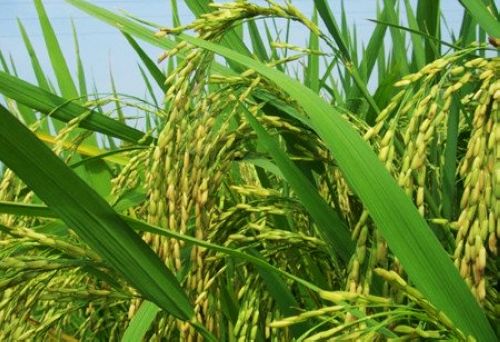The truth about GM rice experiment?
- By Zhu Yuan
 0 Comment(s)
0 Comment(s) Print
Print E-mail China Daily, September 5, 2012
E-mail China Daily, September 5, 2012
|
|
|
A US-backed study which used Chinese children as guinea pigs to try out a new type of genetically modified rice has been condemned by an environmental rights group. [File Photo] |
Who should we believe?
This is the first question to be asked about the experiment that US scientists from Tufts University are reported to have conducted by feeding some children in Central China's Hunan province genetically modified rice known as golden rice.
Their goal was to see whether the rice, which is rich in carotene, is effective in providing children with vitamin A.
After a study that gave the impression the experiment was indeed conducted was published in the August edition of The American Journal of Clinical Nutrition, various scientists and the environmental organization Greenpeace protested that medical ethics and good scientific practice had been breached. A Tufts University spokeswoman said the experiment was conducted and approved by departments in both China and the US, and that the parents of the children who were fed the rice had given their assent, according to some reports.
Yet the local Hengyang government in Hunan denied that such a project had taken place. The spokesman from the Hengyang government maintained instead that a study had been conducted on the transformation of carotene in vegetables into vitamin A in children's bodies. The study was commissioned by the Chinese Center for Disease Control and Prevention in 2008 and 68 primary school students were selected in the city for the experiment.
What is peculiar is the fact that the sources from the CDC and other Chinese government departments, such as the Ministry of Agriculture, are vague in their explanations.
If the experiment was real and if golden rice was used to feed the children, then some questions need to be clarified.
The first is: Which Chinese department approved the experiment? This is important to answer because growing and selling GM rice is forbidden in the country.
The safety of GM food is still a matter of debate and the possibility that Chinese children were fed GM golden rice for a study is certainly worthy of scrutiny. If a Chinese government department approved such an experiment, what rule did it take that action under?
Then there are the questions of whether the children's parents were given enough information about GM golden rice to allow them to make informed decisions before they allowed their children to participate in the experiment, as well as whether the process used to select the children and conduct the experiment conformed to pertinent rules.
It is quite possible that such an experiment was conducted with good intentions and will produce good results. Even so, the way in which it was conducted should conform to established professional and ethical rules. The ends should never justify the means.
With varying stories and opinions about the experiment now rampant on the Internet, in micro blogs in particular, it is important that central authorities take steps to clear up the matter.
If central authorities, such as the Ministry of Agriculture or the Ministry of Health, knew nothing about it, they should organize an investigation into the matter and tell the public the entire story.
Even if the investigation proves that the local Hengyang government spokesman has told the truth, readers need to know why the study in The American Journal of Clinical Nutrition mentioned the experiment and whether the article contained misleading information.
Truth, and nothing but the truth, is always the best weapon to shatter a lie. Central authorities' first and foremost priority should be to find out the truth and dispel the doubts people have about this matter.







Go to Forum >>0 Comment(s)